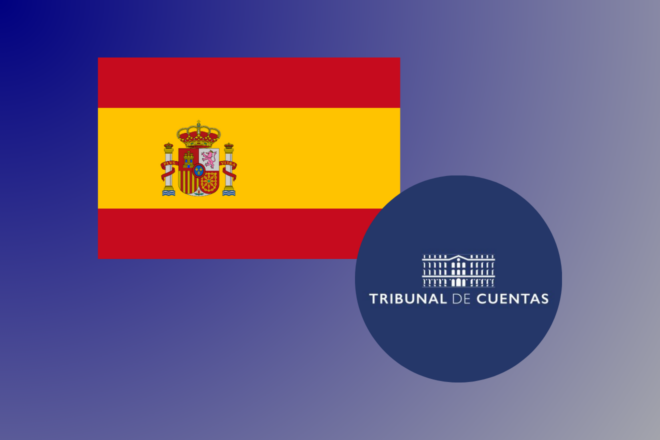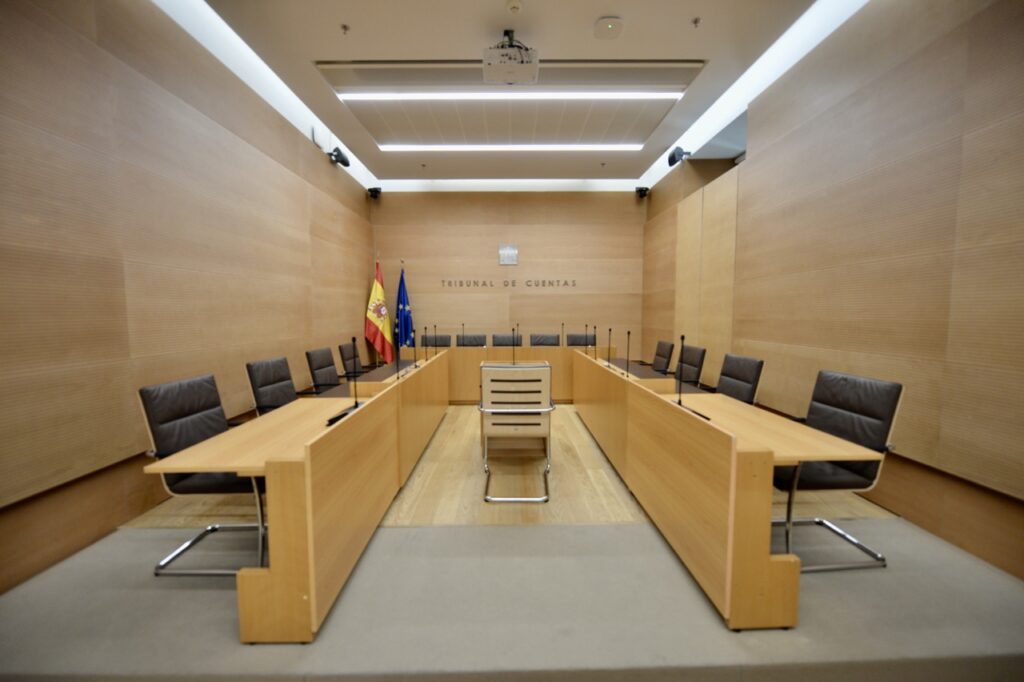The Challenges of the Jurisdictional Function of the Supreme Audit Institution of Spain in Modern Society

Author: Carlos Cubillo, Secretary-General, Supreme Audit Institution of Spain
The economic and social environment in Spain
Spanish society has undergone major changes over the last 20 years in line with other countries of the European Union. The financial crisis of 2008 strongly impacted the Spanish citizenry, and resulted in the arrival of important and fast changes: political, economic and social changes.
Spain, like the other countries of the world, had not yet overcome the consequences of that economic and financial crisis, when it was surprised by the appearance of the COVID-19 pandemic. This emergency health scenario tested the resilience of the Spanish legal and institutional system and, in particular, its national health system.
The COVID-19 pandemic has induced interesting social changes: a greater concern of citizens for public investments in health and research, a greater ecological awareness, and a better predisposition towards technological modernization (such as teleworking) and towards the preservation of cybersecurity.
The two historical and unfortunate events mentioned, together with other circumstances that occurred both nationally and internationally, have made the public more demanding with the operation of the Public Sector, more participatory in the community and more sensitive about the future that awaits the new generations.
Changes in the organization and functioning of the Spanish Public Sector
The evolution of Spanish public opinion, described in the previous section, has forced the public authorities to adapt to the new requirements of citizenship.
To this end, in recent years there has been intense normative activity aimed at strengthening legality, efficiency, transparency, equity and ecological sustainability in the organization and functioning of public institutions. These are aspects already covered by the 1978 Constitution but which, in order to respond to the concerns of modern society, have been strengthened by the elaboration of new norms or by updating existing ones.
On the one hand, an appropriate legal framework is created to ensure compliance with the laws throughout the economic and financial activity of the Public Sector and, in particular, in terms of contracts, subsidies, town planning, public revenue, human resources expenditure and representation expenditure. This reduces corruption and fraud in the management of public assets.
On the other hand, administrations and other public sector entities are adjusting their internal organization so that they can be more efficient in the provision of public services and in the implementation of public policies. If the units are properly organized, their operating procedures can be made safer and more efficient.
In addition, a principle of transparency is required in public management, so that, without breaching the regulations governing the protection of personal data, public managers make it possible for citizens to know about the contracts that are concluded, public budgets, salaries of public officials, subsidies granted, public offers of employment…
The public sector in Spain has also had to evolve to prevent its actions from being harmful from an environmental point of view and to promote ecological development processes.
Finally, the actions of the Public Sector have had to take a turn to satisfy a society concerned with equity and equality, especially the fight against gender discrimination.
All this framed in a stage of “Public Ethics”, integrated by principles and deontological values and called on to turn the Public Sector into a reference of honesty and cleanliness.
This process of evolution also implies a constant modernization of technologies and cybersecurity. This permanent update, with the horizon of artificial intelligence in the background, requires very high investments of money and initial and continuous training of professionals who provide their services in the Public Sector.
A society in permanent and rapid transformation, like the Spanish one, needs a modern and dynamic Public Sector. This presupposes an inevitable effort in the drafting of new rules, changes in the culture of administrative management, greater connection with society and a learning of the management techniques offered by international law that have produced good results.

Modernization of the Spanish Supreme Audit Institution
As a result of these changes in Spanish public opinion and in the country’s public sector, institutions with control and supervision functions have also had to make an important modernization effort to satisfy citizens.
The Spanish Supreme Audit Institution has been developing different lines of action to provide a quality service in this new historical stage.
The following are some of the main goals being pursued and progress being made:
- Increasing the scope of the audits. In its traditional regulation, the Supreme Audit Institution of Spain was entrusted with the audit of the economic and financial activity of the Public Sector to verify its compliance with the principles of legality, effectiveness and efficiency. As of 2015, the new legislation also entrusts it with monitoring the impact of the management of public funds on improving transparency, gender equality and environmental sustainability.
- Greater involvement with society through the adoption of initiatives that allow citizens to know how the Supreme Audit Institution of their country works and how the activity of that Institution benefits their quality of life. In this sense, for instance, there are guided visits to the facilities of the Institution, the dissemination of information in schools, universities, public transport… the modernization of the website, participation in social networks and greater proximity to the media.
- Increased collaboration between the Spanish Supreme Audit Institution and the regional Audit Institutions.
- The increased participation of the Spanish Supreme Audit Institution in international projects, especially in the field of INTOSAI, EUROSAI and OLACEFS.
- The strengthening of relations with Parliament, the executive branch and the judiciary.
- The establishment of the mechanisms necessary for the proper performance of its legally assigned function of punishing political parties whose financing violates the rules.

The role of the Judicial Function of the Spanish Supreme Audit Institution in modern society
The regulatory legal regime of the Judicial Function of the Supreme Audit Institution of Spain
The Spanish “Tribunal de Cuentas” has, among others, the function to prosecute the civil liability of managers of public assets who violate the laws and also of recipients of public financial aid who receive it improperly or who do not justify how they have used it or who apply it public money received for illegal purposes.
The characteristics of this function, the judicial one, are the following:
- It prosecutes civil liability, not the criminal or administrative sanction, which may be incurred by those who manage the public patrimony.
- The Judges and Chambers hearing these legal responsibilities are attached to the Supreme Audit Institution´s Trial Section. The final decisions issued in the exercise of this judicial function may be appealed to the Supreme Court of Spain.
- The procedures through which the Judicial Function of the Spanish Supreme Audit Institution is carried out are regulated by law and comply with the procedural guarantees provided for in the Spanish Constitution and in the international treaties signed by Spain on the matter.
The Spanish Supreme Audit Institution is part of the International Forum of Supreme Audit Institutions with Judicial Function constituted by INTOSAI.
Usefulness of the Judicial Function of the Supreme Audit Institution for the current Spanish society
The legal competence of the Spanish “Tribunal de Cuentas” to judge legal responsibilities can respond to one of the great concerns of society today, that public funds lost as a result of corruption and waste are recovered.
Being a Jurisdiction that prosecutes civil responsibility, it is optimal for the achievement of that social desire for the integrity of the Public Patrimony.
On the other hand, it must be borne in mind that it is a specialized jurisdiction and therefore suitable for interpreting complex issues of budgetary law, commercial law, public audit and public accounting with professionalism and knowledge. The specialized work of this Jurisdiction may also be useful for the performance of its tasks by other Jurisdictions, offering technical solutions to the issues tried within a framework of institutional cooperation between judges and courts of the different state jurisdictions.
It should also be said, namely that the procedures of this specialised Court can be initiated by complaints from citizens and private companies, a logical legal measure that is based on the fact that the recovery of public funds unjustly spent is an important citizen concern and, therefore, the proximity of the administration of justice to the society must be enhanced.
To assume this role, the Jurisdictional Function must move in two main directions:
- A legislative reform that streamlines and modernizes procedures for judging responsibilities.
- An advance in technological modernization that qualitatively and quantitatively improves the processing of procedures.
In conclusion, it can be said that the model of a Supreme Audit Institution with a judicial function has been strengthened in recent years in several countries, among them Spain, as a consequence of the fast changes experienced by society and by the Public Sector that serves it.





